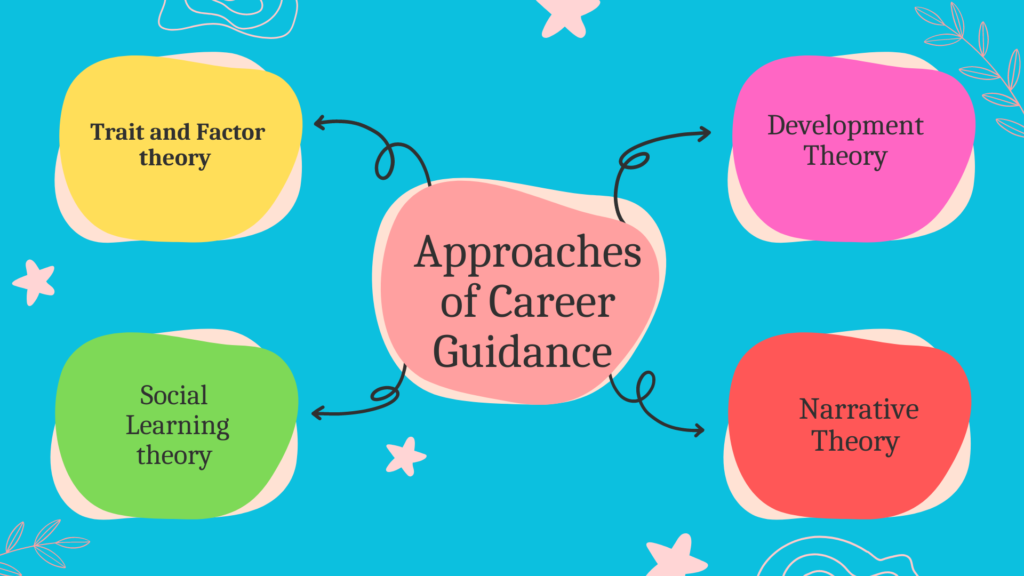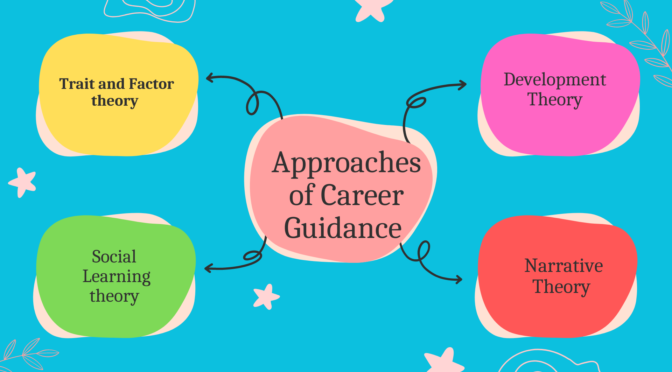Career guidance is a process that helps individuals to make informed decisions about their career choices and to develop the skills and knowledge necessary to achieve their career goals.
It involves a range of activities, such as career assessment, exploration of career options, goal-setting, and planning for education and training.
Career guidance can be provided by a variety of professionals, including career counselors, educators, mentors, and coaches.
The goal of Career Guidance
The goal of career guidance is to empower individuals to take control of their career development, to identify and pursue career opportunities that align with their interests, skills, and values, and to navigate the challenges and opportunities that arise throughout their career journey.
Also Read: Principle of Education Planning
Approaches of Career Guidance
There are several approaches to career guidance, each with its own unique focus and goals. Here are some common approaches:
- Trait and Factor Theory: This approach emphasizes matching an individual’s personality traits, abilities, and interests with careers that are best suited for them. It suggests that people can have a successful career if their personal characteristics match the demands of the job.
- Developmental Theory: This approach focuses on the stages of career development, helping individuals to identify where they are in their career journey and what steps they need to take to progress to the next stage.
- Social Learning Theory: This approach emphasizes the importance of role models, observational learning, and socialization in career decision-making. It suggests that people can learn about different career options and develop career-related skills by observing and interacting with others in their environment.
- Narrative Theory: This approach emphasizes the importance of personal stories and the role they play in shaping an individual’s career path. It suggests that people can gain insight into their career aspirations by reflecting on their life experiences and the stories they tell themselves.
- Person-Centered Theory: This approach emphasizes the importance of self-awareness, self-acceptance, and personal growth in career decision-making. It suggests that people can make meaningful career choices by understanding and accepting who they are as individuals.
These approaches can be used individually or in combination to provide a comprehensive career guidance experience tailored to the needs of the individual.
Also Visit: Prep with Harshita



33 thoughts on “Approaches of Career Guidance”